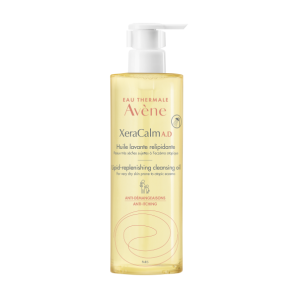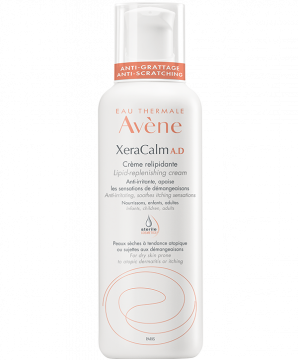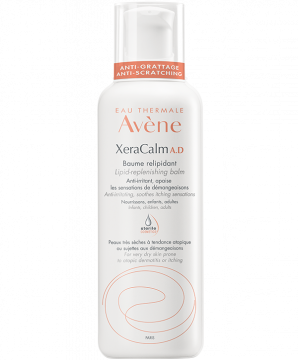- Your needs
-
Skincare Product lines
- SPECIFIC CARE
- Intolerant skin
- Cleanance
- Redness-relief
- Cold Cream Visage
- Cicalfate +
- XeraCalm A.D
- DAILY CARE
- Tolérance Control
- Hydrance
- Essential Care
- SOLAR
- Compact Tinted SPF50+
- ANTI-AGING
- A-Oxitive
- PhysioLift
- DermAbsolu
- Hyaluron Activ B3

Product line XeraCalm A.D
Doctor's opinion
-
Most of the time, no. However, sometimes children have intolerances to certain foods which makes their eczema worse. Practically speaking, your doctor will look for food allergies in specific cases. Following testing, a special diet might be recommended.
-
In order to reduce the risk of atopic dermatitis in families at risk, it is recommended that mothers breastfeed as long as possible. In the same way, it is recommended to delay the introduction of varied foods (mainly eggs and fish) until after the age of six months.
-
Of course. Bathing offers many benefits: Cleanses, relaxes and prepares the skin for emollients. Be careful though: The bath should not be too hot, around 30-32°C (86-89°F) since hot water (around 98.6°F) might cause itching. Cleansers or bath oils should be very mild.
-
They are often recommended for atopic children. They include treatments (baths, showers, drinking water) using thermal spring water, possibly limited sun exposure and regular medical follow-up. This is a way for children and parents to get more familiar with atopic dermatitis and its treatments.
-
Animal hair (ponies, dogs, cats) or bird feathers can cause respiratory allergies. If the child has a pet that he loves and there is no problem, it is fine to keep it. On the other hand, in case of sneezing or conjunctivitis, it might be a good idea to remove the animal; if you don’t have an animal yet, the allergy risk should be considered before adopting one.


